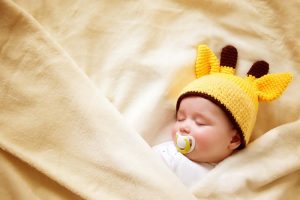Luis faces his first day of school today. He is almost three years old, but he only takes the pacifier out of his mouth to eat or when he wants to say something. And the truth is that he doesn’t talk much. The teachers had informed his mother that he would not be able to take him at school and that she would try to withdraw him before the start of the course, but none of the tricks he has used have served him: he has succumbed to her screams, cries and tantrums. And the truth is that this is the worst time to try it, since the child has enough to face his first days at school.
Perhaps, your teacher will get that, seeing that your classmates do not use it, agree to take it off in class. And very slowly, in coordination with the parents, I managed to get Luis to completely and definitely dispense with him.
It is not common to see children of three or more years wearing a pacifier on the street, but surely we have sometimes been surprised by the image of an older child with him in his mouth. The truth is that they are isolated cases , behind which there can be many causes: parents really convinced that it is not bad , because it calms and relaxes the child; other overprotectors unable to give their child an upset; some who have gotten used to giving him the pacifier every time he cried or demanded his attention … In any case, at some point we will have to make the decision that our son dispense with it.
PACIFIER YES OR NO?
Although a few years ago the use of the pacifier began to be questioned, based mainly on some medical evidence , the truth is that, today, many of them have been clarified and corrected.
The child has an innate sucking reflex that prepares him for nutrition, but goes further: it produces a release of endorphins that give him pleasure and calm him . Because of this, most children will try to satisfy that need to suck in one way or another.
If we don’t give them a pacifier, they will resort to their finger, their pajama sleeve, their sheet …
Therefore, should we offer the pacifier to our child? It depends. If we are not supporters, we can observe what forms he uses to calm down or calm his anxiety when, for example, something hurts, he is sleepy, or hungry. If he resorts to thumb sucking, perhaps we should consider that this habit is more damaging to his teeth and palate and even to his finger, and that it will be more difficult to eliminate it, because the finger is always with him. But there is also the case of children who do not want a pacifier and do not suck their thumb.
(adsbygoogle = window.adsbygoogle || []).push({});
RATIONAL USE OF THE PACIFIER

- If you opt for breastfeeding , you should not offer the pacifier to the child until it is well established ( between 2 and 4 weeks ) because the type of sucking that the pacifier learns is not the one it needs to latch onto your breast and because , if you satisfy part of your sucking needs with the pacifier, you will use less to breastfeed, with the consequent decrease in milk, less weight gain, etc.
- Don’t just use the pacifier to calm your child when he’s crying or fussy . You can rock it, caress it, sing a lullaby, feed it … The child may have a real need to attend to. Do not use the pacifier to delay the taking of food. Sometimes it’s not good to be so rigid. Why keep him waiting? The child should be fed on demand during the first months. He will only regulate himself.
- Reserve its use for specific moments : when he goes to sleep, while you prepare the bottle if he is hungry, when he is restless. These are situations in which the pacifier can soothe him. The rest of the time, we advise you to play with him, give him an object that he can grasp, touch, put it in his mouth. That is the way that, for many months, has to explore the world. Many children who abuse the pacifier have speech delays.











































































































